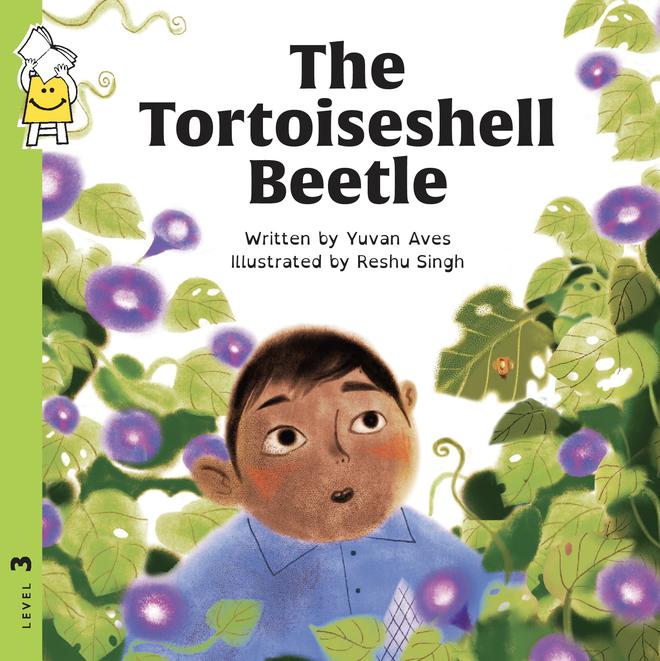One monsoon day, Rohith goes for a walk with his teacher by a lake, near his school. She leads him into the world of ants, palm swifts, and frogs; Rohith watches, his eyes wide: for the first time, he finds something that resonates with him. This idea forms the crux of naturalist Yuvan Aves’ latest story for children, The Tortoiseshell Beetle (published by Pratham).
This is Yuvan’s third book for children. He is also working on a collection of essays on Nature-based learning pedagogy for teachers and parents.
“Nature is an inclusive learning space,” feels Yuvan, who is also an educator working with five Government schools and a private Montessori school in the city. “Children learn in different ways: they need movement, and multiple sensorial connections. A natural learning space frees the child, by developing these innate capacities.”

In this story illustrated by Reshu Singh, a child struggles to “see the meaning of things” in a conventional schooling system. “But the natural world helps his intrinsic curiosity blossom,” Yuvan adds. The tortoiseshell beetle which the little boy comes across, is the subtext in the story. Yuvan says that the larva of the beetle is hairy, and “can seem hideous to the human eye”. He adds, “No one can guess that it can turn into something beautiful.”

Beetles, he explains, have cases for their wings. The tortoiseshell beetle has a beautiful transparent wing case. “They look like little spaceships flying around,” Yuvan adds. He draws a parallel between these beetles and children. “When someone is young, you have no idea of the extraordinary people they’ll turn out to be.” All they need, he feels, is a space for them to blossom. “The natural world is such a space,” says Yuvan, adding that ultimately, if children grow up reading such stories, “they will stand-up for these species and the living world around them.”
The Tortoiseshell Beetle is available for reading on storyweaver.org.in. It will be available in print in April.







